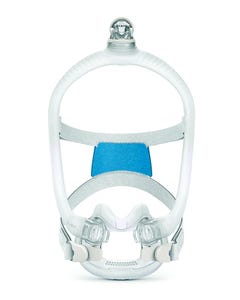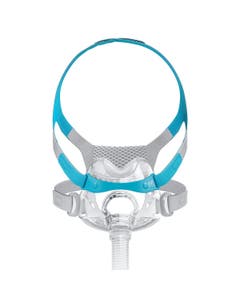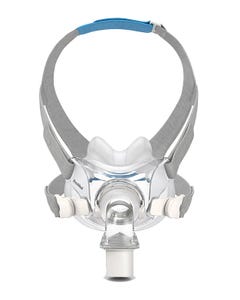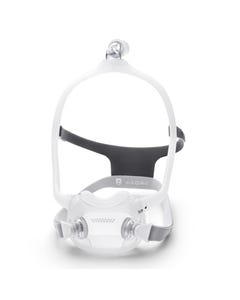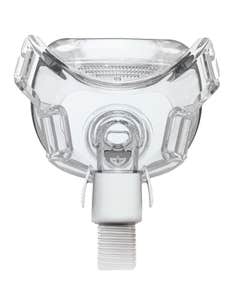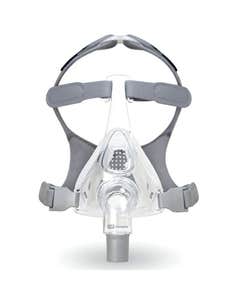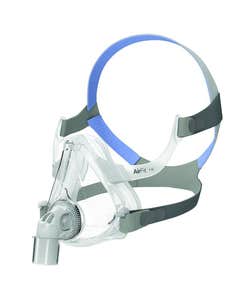CPAP Mouth Breather: Impact and Solutions
Key Takeaways
- If you have sleep apnea and tend to breathe through your mouth, a full face CPAP mask may be the best option for you.
- Full face masks cover both the mouth and nose, accommodating mouth breathers and reducing the risk of pressurized air escaping.
- Breathing through your mouth has many causes including asthma, allergies, or chronic colds.
Mouth breathing is common among sleepers with and without sleep apnea. It can have an impact on those trying to manage their sleep apnea with CPAP. If you are a mouth breather while you sleep and are using CPAP, then you might want to think about your CPAP equipment options.
Is Mouth Breathing Bad for CPAP Therapy?
Mouth breathing is not necessarily bad for CPAP therapy, but it can reduce the effectiveness if you are not using CPAP equipment for mouth breathers. The type of CPAP mask you use may make your CPAP therapy less effective if you are a mouth breather.
Mouth breathing can also come with some other health concerns, ranging in severity from cavities and bad breath to throat infections and gum disease. Additionally, mouth breathers can also lead to headaches, fatigue, high blood pressure, and more. That's because when you breathe through your mouth, you are depleting your carbon dioxide levels, decreasing your blood circulation and slowing your brain and reflexes.
What Causes CPAP Mouth Breathing?
While many people breathe through their nose, some people breathe through both their nose and mouth. It becomes more common as people get older and worsens sleep apnea for those who have the sleep condition. While age is a cause of mouth breathing, allergies, asthma, and colds also are commons causes.
What Type of Mask Do CPAP Mouth Breathers Need?
Mouth breathing while you sleep allows air to escape from your mouth. If you are using a nasal or nasal pillow CPAP mask, then your CPAP therapy may be less effective. For the best results, most mouth breathers should use a full face CPAP mask. This style of mask covers both your mouth and nose and more effectively controls your breathing.
Beyond Masks: Addressing Mouth Breathing Habits for Improved CPAP Use
Chin Strap
Chin straps help keep your mouth closed while you sleep to minimize mouth breathing. They also prevent unintended air leaks while you sleep to ensure that the pressurized air is being delivered properly and reaching the airway. Chin straps vary in color and design so users to choose which is best for them.
Mouth Taping
Applying tape over your mouth while you sleep can also help promote breathing through the nose rather than the mouth. Using medical tape is recommended for a painless solution to wearing mouth tape.
Chin Up Strips
Much like chin straps, chin up straps help keep your mouth closed during sleep to prevent air leakage from your CPAP machine. Chin up straps differ in design, working in conjunction with your headgear to comfortably keep your mouth closed. They are an option for those who find chin straps uncomfortable.
Tips for CPAP Mouth Breathers


Along with the proper CPAP equipment you can also follow some best practices for minimizing mouth breathing.
- Practice breathing through your nose. Nose breathing is healthier. With some practice, you can train yourself to breathe entirely through your nose.
- Blow your nose before bedtime. Often mouth breathing is the result of nasal congestion. Keep your nose clean so you can more easily breathe through your nose.
- Prop up your head with a pillow. Prone positions can sometimes promote mouth breathing during sleep. Try to elevate your head slightly with a larger pillow to promote nasal breathing.
- Fit your mask properly. Making sure your mask fits on your face properly will have a great impact on your overall therapy and sleep.
Other Reasons Mouth Breathing is Bad
Nasal breathing is a healthier option for several reasons.
- Controls body temperature. Nasal breathing vs. mouth breathing more effectively controls body temperature.
- Filters out toxins. Your nose is designed to capture dust and other airborne particles and prevent them from getting to your lungs. Your mouth lets in these airborne toxins.
- Moistens the air you breathe. Many mouth breathers complain about dry mouth. That’s because they are only breathing dry air in the room. The nose naturally humidifies the air you breathe.
Along with practicing nasal breathing for overall health, be sure to see if more effective CPAP equipment like a full face mask might be a better solution for your CPAP therapy. If you have any questions about sleep apnea, mouth breathing, CPAP therapy, or CPAP products, The CPAP Shop's expert staff is happy to help you! Give us a call at 866-414-9700 today.




